
Taiwan’s Deep-Seated Distrust of Xi Jinping’s China
On the eve of Taiwan’s presidential election, with Taipei residents hotly debating who to vote for, one particularly interesting argument was overheard between an old man and a young woman. Among the most heard words in their conversation were, surprisingly enough, Xi Jinping, the name of China’s powerful leader.
The man, in his 60s, sounded like he was a former senior official of the Kuomintang (KMT), Taiwan’s main opposition party.
“I think young people will all vote for Ko Wen-je,” he said, referring to the presidential candidate for the Taiwan People’s Party, the third largest party. He cited opinion polls showing Ko’s popularity among voters in their 20s and 30s.
“That’s so wrong,” said the woman in her 30s without revealing who she would vote for. “Oh really?” the man replied. “Then you should all vote for the KMT’s [presidential candidate] Hou Yu-ih.”
He then gave his opinion as to why: “If [the ruling] Democratic Progressive Party’s Lai Ching-te, who is seen as an advocate of Taiwan independence, becomes president, Xi will surely launch an invasion of Taiwan within the next decade. Or rather, it may happen by 2027.”
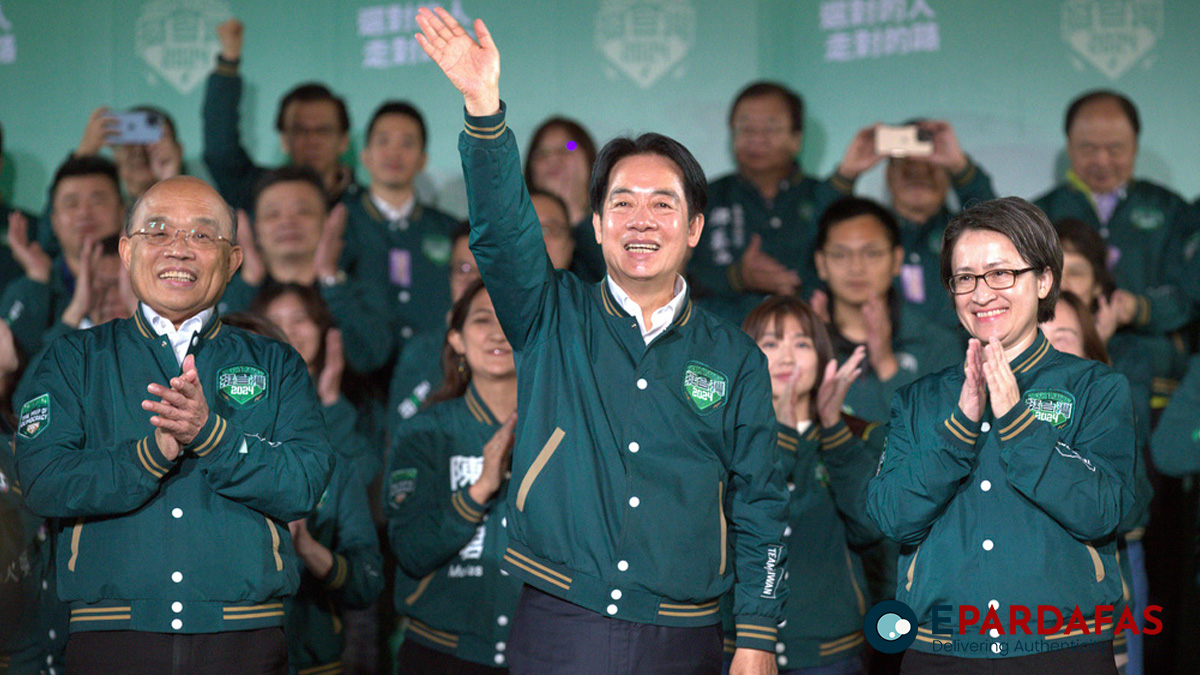
The Chinese Communist Party holds its next National Congress and chooses its leader that year.
The old man warned that if China does invade, free presidential elections would never again be possible in Taiwan. “Have you ever seriously thought about that?” he asked the woman. “If we choose the KMT, which can hold talks with China, that will not happen.”
The woman disagreed. “You are saying that if a KMT candidate becomes president Xi will not invade Taiwan. But I think you are wrong,” she said. “Moreover, if the KMT is the party in power when Xi does invade, it will immediately raise the white flag and surrender without fighting back. Am I wrong?”
Neither the old man nor the young woman budged an inch, and their debate ended with no conclusion. Still, the current feelings of Taiwanese toward Xi’s China were on display in this discussion.
The presidential election on Saturday concluded with the DPP’s Lai, Taiwan’s current vice president, defeating the two opposition candidates.
The election’s extraordinarily high voter turnout of over 70% showed how determined Taiwanese were to exercise their right to directly participate in their hard-earned democracy. Some Taipei residents on the eve of the election said they would travel several hundred kilometers the next day so they could vote in their proper jurisdictions.
No matter who or which party they support, almost every Taiwanese voter shares a sense of crisis that an armed invasion by Xi’s China could happen. Another former senior official of the KMT who is said to be pro-China had similar views.
Taiwan unification is an important political goal for Xi. At the Chinese Communist Party’s national congress in 2022, he declared, “We will never promise to renounce the use of force, and we reserve the option of taking all measures necessary.”
When Taiwanese last voted for president, in 2020, their attention was monopolized by massive demonstrations in Hong Kong and how Xi’s China responded to them.
This time, some critics were saying Taiwanese voters might not focus too much on China; they were wrong.
It is obvious that how to respond to Xi’s China was what mattered most in this year’s election. This was born out by KMT elder Ma Ying-jeou, a former president of Taiwan, not appearing at the party’s massive rally on the night before the election. Days earlier, he had made remarks that were considered extremely pro-China.
Ma told Deutsche Welle, Germany’s international broadcaster, in an interview aired on Jan. 10 that Xi must be trusted regarding cross-strait relations. Ma also said that constitutionally speaking, unification with mainland China is “actually acceptable” for Taiwan. His remarks reverberated across the self-ruled island.
KMT campaign headquarters worried that if it trotted out Ma the night before the election, it could antagonize or alienate supporters.
Ma’s background explains why he said Xi must be trusted. He served as Taiwanese president from 2008 to 2016 and in 2015 became the first Taiwanese leader to sit down face-to-face with China’s leader.
Hou Yu-ih, the KMT’s presidential candidate, had been calling for dialogue with Beijing but had clearly objected to the unification of Taiwan with mainland China under Xi’s ambition for “one country, two systems.”
At a news conference on Jan. 11, Hou was forced to explain that he and Ma were not on the same page and that even if he won the election, he would not touch on the unification issue while in office.
By electing the DPP’s Lai, voters reflected the prevailing sentiment in Taiwan: Xi cannot be trusted. Voters wanted a continuation of incumbent President Tsai Ing-wen’s policies. That is, to maintain the status quo along the Taiwan Strait while keeping China at a distance.
China’s pressure on Taiwan, which has grown heavier during Xi’s time in power, now has senior KMT officials feeling a sense of crisis. Ordinary Taiwanese feel it as well, which means it has never been more important to protect peace and stability along the Taiwan Strait.
The strait, which separates mainland China from Taiwan, is narrow. It is about 124 kilometers from Pingtan Island, off the east coast of China’s Fujian province, to Hsinchu, in the northwest of Taiwan.
Xi often visited Pingtan while he was serving as Fujian governor.
Meanwhile, the fact that the westernmost Japanese island of Yonaguni, Okinawa prefecture, is geographically closer to Taiwan than Pingtan Island is not well known. The northeastern Taiwanese county of Yilan is located 111 kilometers from Cape Irizaki, on the western tip of Yonaguni Island.
If the right weather prevails, which is only the case several times a year, the mountains of eastern Taiwan can be seen from Cape Irizaki.
In August 2022, China fired ballistic missiles into areas around Taiwan in response to then-U.S. House Speaker Nancy Pelosi’s visit to the island. Some of the missiles fell within Japan’s exclusive economic zone, not far from Yonaguni Island.
It was the first time in history that Chinese ballistic missiles fell within Japan’s EEZ, a dramatic change in Japan’s security environment.
Given the tense situation, Japan has stepped up its military presence on Yonaguni Island. Already a radar station to monitor the movements of Chinese forces has been built, and troops from the Ground Self-Defense Force are now stationed on the island.
The Bashi Channel off the south coast of Taiwan, meanwhile, holds a significant meaning for Japan’s efforts to secure sea lanes. The waterway lies between Taiwan and the Philippines. It also faces the southern part of the Taiwan Strait to the west and the western Pacific to the east.
If conflict breaks out between China and Taiwan, the navigation of private vessels through the Bashi Channel could be immediately affected.
Ships may not be able to navigate through the channel from the South China Sea to the Pacific, forcing tankers transporting crude oil to Japan to detour.
To a certain extent, all three presidential candidates — Lai, Hou and Ko — shared the recognition that an invasion of Taiwan by the Xi administration is possible.
The U.S. and Japan have a similar awareness. Two days after the election, on Jan. 15, an unofficial U.S. delegation met with President-elect Lai in Taipei. To keep China from taking any action, it was important for the U.S. and Taiwan to confirm that there will be no change in the status quo regarding the island.
While the DPP held onto the presidency, it lost its majority in the Legislative Yuan. Lai, whose four-year term begins in May, will need sincere cooperation from opposition parties — who already share a sense of crisis — if peace and stability along that narrow strait are to be maintained.
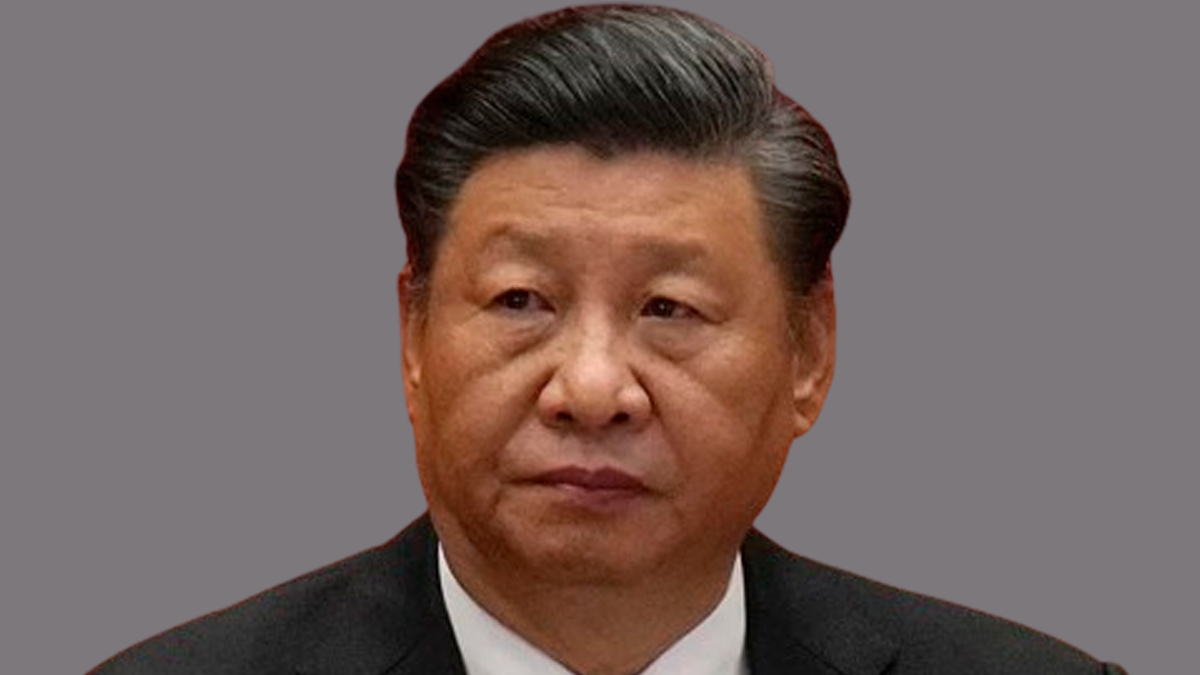


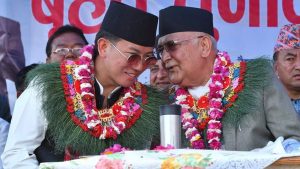
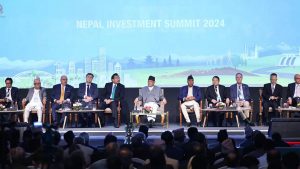

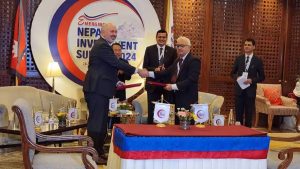








Comments